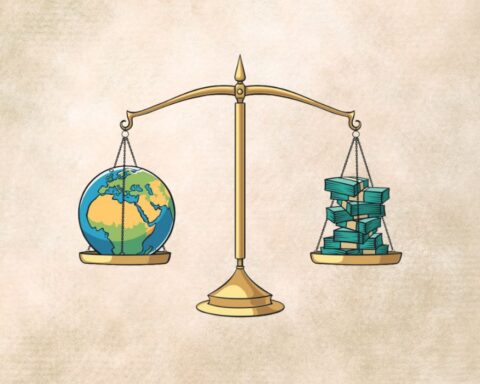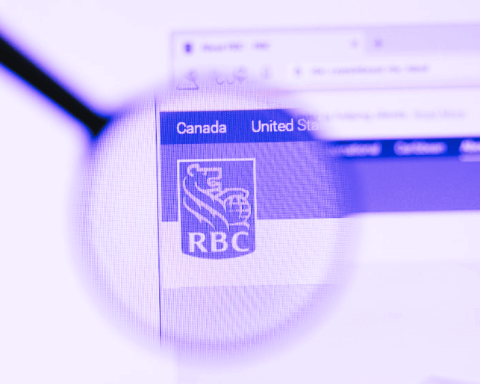1758:
The Religious Society of Friends (better known as Quakers) Philadelphia Yearly Meeting prohibits members from participating in the slave trade – buying or selling humans. Nearly 20 years later, in 1776, those Quakers that still owned slaves were to be disowned.
1760:
John Wesley, the founder of the Methodist movement within the Church of England, delivers his sermon “The Use of Money,” outlining the basic tenets of social investing, including we “ought not to gain money at the expense of life or by losing our souls.”
1928:
Former World War I aviator Philip Carret launches the Fidelity Mutual Trust (which later became the Pioneer Fund), the first publicly offered socially responsible investment fund. It has earned average annual returns of 12% since inception, besting the S&P 500.
1960:
Martin Luther King Jr. proposes that the AFL-CIO labour union invest its pension assets in housing to lessen economic inequality. With more than US$4.5 billion in net assets, the AFL-CIO Housing Investment Trust has since helped finance more than 100,000 affordable housing units.
1968:
The Medical Committee for Human Rights acquires shares in Dow Chemical and submits a proxy statement proposal to amend Dow’s corporate charter to prohibit sales of napalm to any buyer unwilling to assure the substance would not be used against human beings. Dow quietly ceased production of napalm in 1969.
1970:
Wielding just 12 of 285 million General Motors shares, the Ralph Nader–supported Campaign GM submits shareholder proposals. Six months later, Reverend Leon Sullivan joins GM’s board, becoming the first African-American on the board of a major U.S. corporation. GM also establishes a public interest committee.
1971:
Lawyer Paul Neuhauser, a founding member of the Interfaith Center on Corporate Responsibility, files the first shareholder resolution on behalf of a religious organization, requesting that GM withdraw its business from South Africa until apartheid is abolished.
1978:
Jeremy Rifkin and Randy Barber, envisioning a new strategy for American labour, publish The North Will Rise Again: Pensions, Politics and Power in the 1980’s as a movement builds to democratize pension funds to serve a more holistic economic function.
1980:
Widespread divestiture of economic holdings in South Africa is directly credited with the collapse of apartheid and the Afrikaner minority government. By 1993, when the de Klerk administration took steps to end apartheid, US$625 billion was being screened to exclude investment in South Africa.
1989:
In the wake of the 1989 Exxon Valdez oil spill, social investment executive Joan Bavaria mobilizes a coalition of investors and environmentalists to launch the Valdez Principles, a green code of conduct for business subsequently called the CERES (Coalition for Environmentally Responsible Economies) Principles.
2006:
Secretary-General Kofi Annan rings the bell at the New York Stock Exchange to launch the UN–supported Principles for Responsible Investment organization, which promotes the incorporation of ESG factors into investment decisions and now counts more than 3,000 signatories with US$100 trillion in assets under management.
2008:
The World Bank launches the first green bond. The idea came about after a group of Swedish pension funds wanted to invest in climate projects and went to the World Bank for assistance. By the end of 2020, global green bond issuance topped out over US$265 billion.
2012:
Bill McKibben’s article in Rolling Stone magazine, “Global Warming’s Terrifying New Math,” based on work by the non-profit Carbon Tracker Initiative, launches the fossil fuel divestment movement. By 2020, investors with assets of US$12 trillion had pledged to divest some or all of their fossil fuel holdings.
2015:
Bank of England Governor Mark Carney delivers his “tragedy of horizons” speech, defining climate change as a financial stability issue. By 2020, US$150 trillion in assets had signed on in support of the Task Force on Climate-Related Financial Disclosure, led by Carney and Mike Bloomberg.
2018:
Larry Fink, CEO of BlackRock, the world’s largest asset manager, writes in his annual letter to CEOs that companies had better contribute to society or risk losing BlackRock’s support. Without a “sense of purpose,” he noted, companies will “ultimately lose the license to operate from key stakeholders.”
2019:
In an effort to eliminate greenwashing in sustainable investments, EU governments and the European Parliament sign a landmark agreement on how to classify green investments – the first time a global regulator has designed a labelling system for what counts as a sustainable financial product.
2020:
Morningstar reports that global sustainable funds, which invest based on environmental, social and governance (ESG) themes, climbed to a record US$1.65 trillion by the fourth quarter of 2020, when US$347 billion of new money poured into ESG-focused funds – an all-time high.
2021:
The U.K. government instructs the Bank of England to align its monetary policy with the government’s net-zero emissions target. The BoE says it will adjust its approach to corporate bond buying “to account for the climate impact of the issuers of the bonds we hold.”







